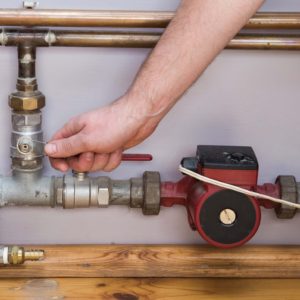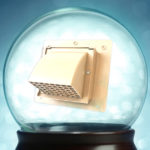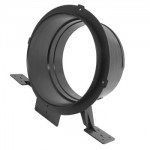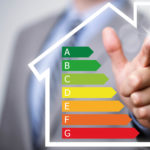 Heat pump water heaters (HPWHs) have been around for a while, with the vast majority of consumers showing little interest. Until recently, it’s been easy to see why: HPWHs are significantly more expensive than conventional gas or electric water heaters, and the potential cost savings can be hard to communicate.
Heat pump water heaters (HPWHs) have been around for a while, with the vast majority of consumers showing little interest. Until recently, it’s been easy to see why: HPWHs are significantly more expensive than conventional gas or electric water heaters, and the potential cost savings can be hard to communicate.
But all of that is starting to change and change quickly. As more and more homeowners and building owners seek ways to improve efficiency and decrease their energy costs over the long term, heat pump water heaters have gained traction and are picking up momentum.
In 2019, sales of HPWHs are expected to rise 8% in North America and 11% globally, with analysts predicting continued growth for at least the next five years. For business-savvy contractors, that represents a huge opportunity to become a leader in the field and boost their profits with higher-ticket sales.
With that in mind, here’s a quick refresher on the benefits and potential savings of heat pump water heaters.
How heat pump water heaters work
Heat pump water heaters don’t directly heat water. Instead, they draw heat from the ambient air around them (or, with some models, from outside) and use it to heat water in the storage tank. All in all, an HPWH transfers more energy than it needs to operate, making it up to 250% more efficient than traditional water heaters.
Because they draw their energy by pulling heat from the air around them, HPWHs can also help lower air conditioning costs during the summer. During winter, the reverse happens: they may cut into the efficiency of the home by pulling in air that’s been heated by the furnace, but this depends on where the HPWH is installed.
Despite their efficiencies, there are some caveats. To operate at maximum efficiency, a heat pump water heater needs to be installed in a location that’s warm year-round, typically between 40 to 90 degrees Fahrenheit (4.4 to 32.2 degrees Celsius). They also need to be installed with plenty of air space around them, such as in a furnace room as opposed to a closet. However, with some additional equipment—such as heat-emitting solar inverters or outdoor evaporator units—these obstacles can be easily overcome.
Potential cost savings
When estimating the potential cost savings of a heat pump water heater, it’s important to keep in mind the potential cost of heated and conditioned air. While the HPWH itself operates with incredible efficiency, it’s achieving those efficiency gains by consuming air that was heated by another source, such as a furnace or baseboard heater. On the flipside, HPWHs help lower air conditioning costs during the summer.
For these reasons, the cost savings of installing a heat pump water heater are hard to pin down. For each installation, the calculation will be unique. By all estimates, however, homeowners can expect to see fairly significant savings over time, and generally, see the unit pay for itself within three years.
One study, conducted by the Canadian Centre for Housing Technology, compared two identical houses built side-by-side. Through a series of tests in summer and winter, they compared a pair of heat pump water heaters to standard electric water heaters. Their findings? In winter, the HPWHs delivered 61% energy savings over the electric water heaters. In summer, they delivered 60% energy savings.
Small changes equal big savings
When it comes to increasing the energy efficiency of a home, the smallest changes can add up to big cost savings. From ensuring the proper heat recovery venting is in place, to upgrading light bulbs from incandescent to CFLs or LEDs, every green decision a homeowner makes pays off in additional savings for years and years to come.
Switching from a traditional gas or electric water heater to a heat pump water heater is no different. With homeowners more and more willing to invest in greener and more efficient technology up front, in order to increase their long-term cost savings, heat pump water heaters are a more viable option than ever before.



